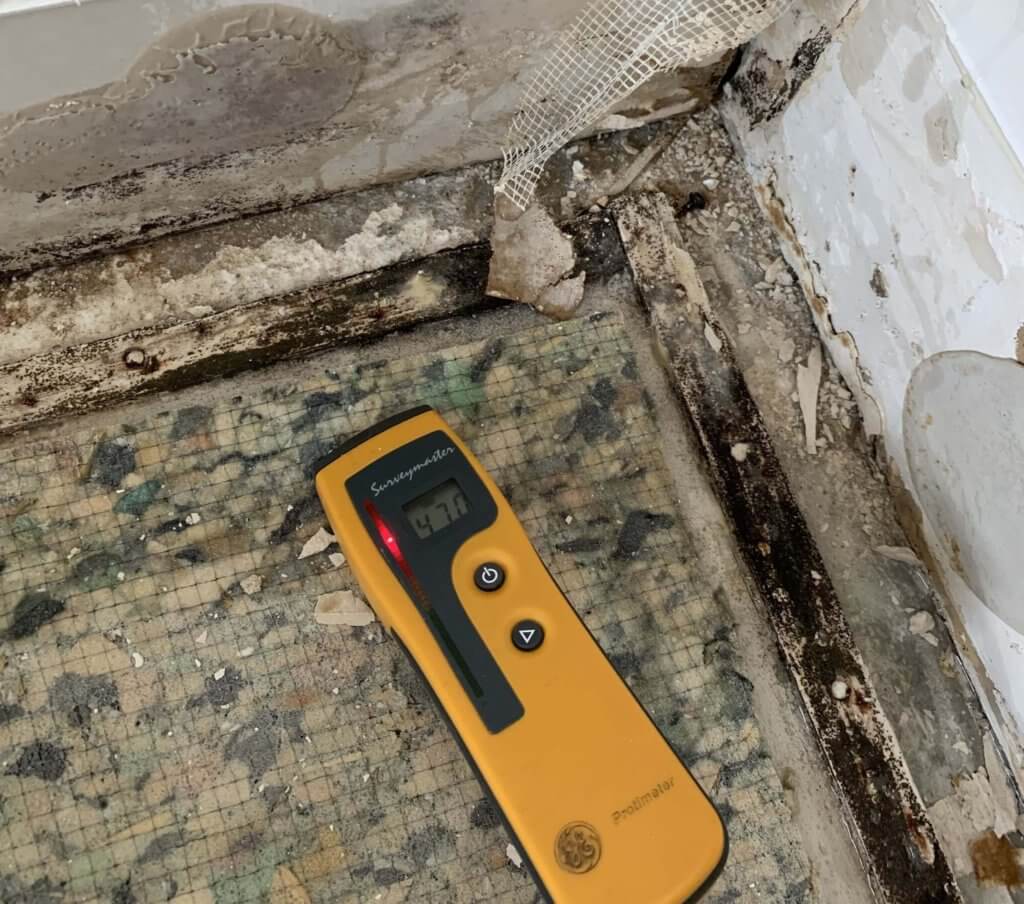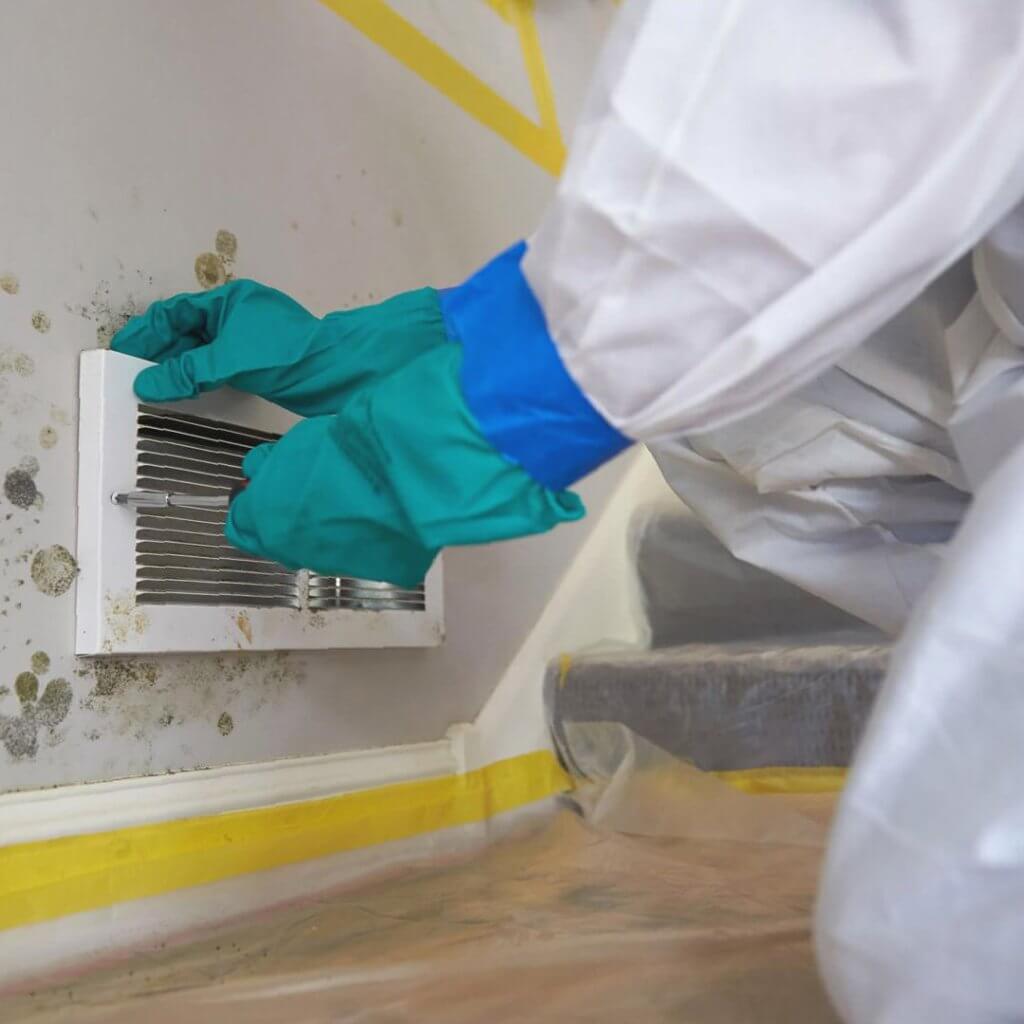
Mold Removal & Remediation
Mold and mildew grow in damp, humid places — which pretty much describes South Florida. Just being here puts our homes or businesses at a greater risk of developing a mold problem, that is why testing is always a good idea. Of course, if you’ve experienced any kind of water damage (leaky pipes, leaking windows, flooding, etc.) that risk is even higher.
Once we have determined there is a problem we can quickly remove and remediate the problem!
What To Do If You Suspect Mold
Mold releases microbial spores that get into the air and from there into your eyes, throat, and lungs. These spores cause a wide variety of respiratory problems, especially in those with asthma or allergies. They are also invisible, which makes them impossible to detect without proper equipment. Your family may already be suffering ill effects from mold spores without even seeing any mold in your home.
If you suspect that you have mold or have experienced any amount of water damage, call Steamaster Restoration LLC and we’ll send one of our mold remediation specialists to evaluate your property.
Our specialists are specifically trained in mold detection, and once the source of mold is found and removal begins, they also take remediation measures to prevent mold growth and spreading.

Mold Removal Services
Visual inspection
Air and surface testing
3rd party lab results
Full written analysis
Complete mold remediation
Odor elimination via thermal or wet fogging
Decontamination
Ozone treatments
Mold Remediation Services
Frequently Asked Questions
Get answers to your queries
Mold is found in virtually every environment and can be detected indoors and outdoors, year round. Mold growth is encouraged by warm and humid conditions. Outdoors it can be found in shady, damp areas or places where leaves or other vegetation is decomposing. Indoors, mold can be found where humidity levels are high, such as basements or showers.
Most often, however, it is found in the following places:
Wallpaper and drywall
Ductwork and ceiling tiles
Carpet, drapes and furniture
Attics, basements and crawlspaces
Books and magazines (anything made of paper or organic material)
Two ingredients are needed for mold or mildew to grow. These include oxygen and moisture. With these two prevalent ingredients being available nearly everywhere, it should be no surprise that mold grows abundantly in many places. Mold spores are in the air and attach to moisture. Then if conditions are right, and high levels of moisture remain, the mold will grow.
In homes and offices, common places for mold to grow are kitchens and bathrooms where even a small drip can create an environment for mold to thrive. Leaks or condensation in HVAC systems or on ductwork can create mold problems along with any moisture that gets in the walls, ceilings or under floors.
Since we are exposed to mold and mildew nearly every day, small doses do not generally pose a problem. However, mold impacts people differently. Children, the elderly, asthma sufferers, and those with allergies are more susceptible to having reactions to the presence of mold. This can show itself in the form of respiratory issues that often resemble flu-like symptoms.
Yes. Mold spreads by releasing spores into the air, which can contribute to serious health complications. Besides causing eye and skin irritation, spores can be inhaled and cause allergic reactions and respiratory illness, which can be deadly for people with weak immune systems such as infants and the elderly. Inhaled mold spores can also cause asthma attacks.
